It seems as if he’s waiting for some last train to come out of a dangerous zone where life has become a jinx.
There’s fear on his face and restlessness in his body language. Around him, the fleeing footfall is steadily building up and making the scare evident.
But Bilal Ahmad, 26, is neither fleeing a dangerous zone, nor leaving permanently. He’s temporarily shifting his base in the backdrop of the recent targeted killings in Kashmir.
Sporting a skullcap, Bilal is travelling back to his hometown Punjab along with his father after 27 years. He was born and brought up in Srinagar’s Fateh Kadal area.
“We Muslims have one God, one Quran and despite that we fear for our lives in Kashmir today because the gunmen are seeing the Indian colour and not religion,” said Bilal who works as a galvanizer in the downtown area of Srinagar.
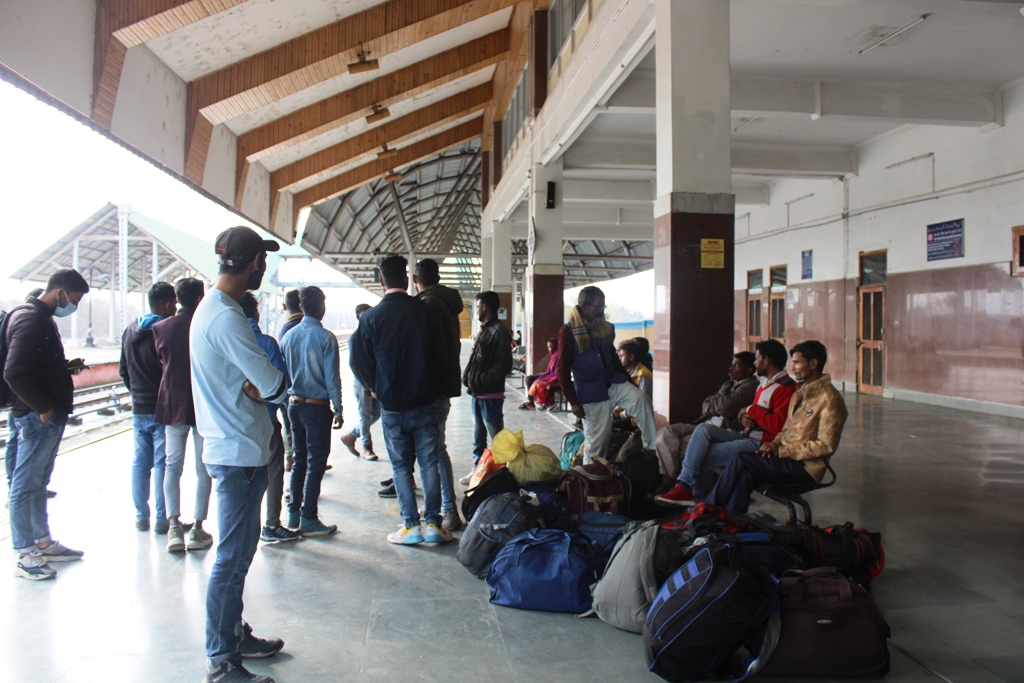
Like Bilal, hundreds of non-locals who were working in Kashmir are moving back to their hometowns after three non-locals were shot dead in two days.
The recent killings were followed by the leaked police circular calling non-locals to military installations in the valley. Despite the police denial, scores of these migrants promptly landed in the government accommodations. The fear gripped them on Sunday, when two non-local labourers were shot dead in South Kashmir’s Kulgam.
It was the fourth attack on non-locals in two days. A day before, on Saturday, two more street vendors were killed — one in Srinagar and another in the Litter area of Pulwama.
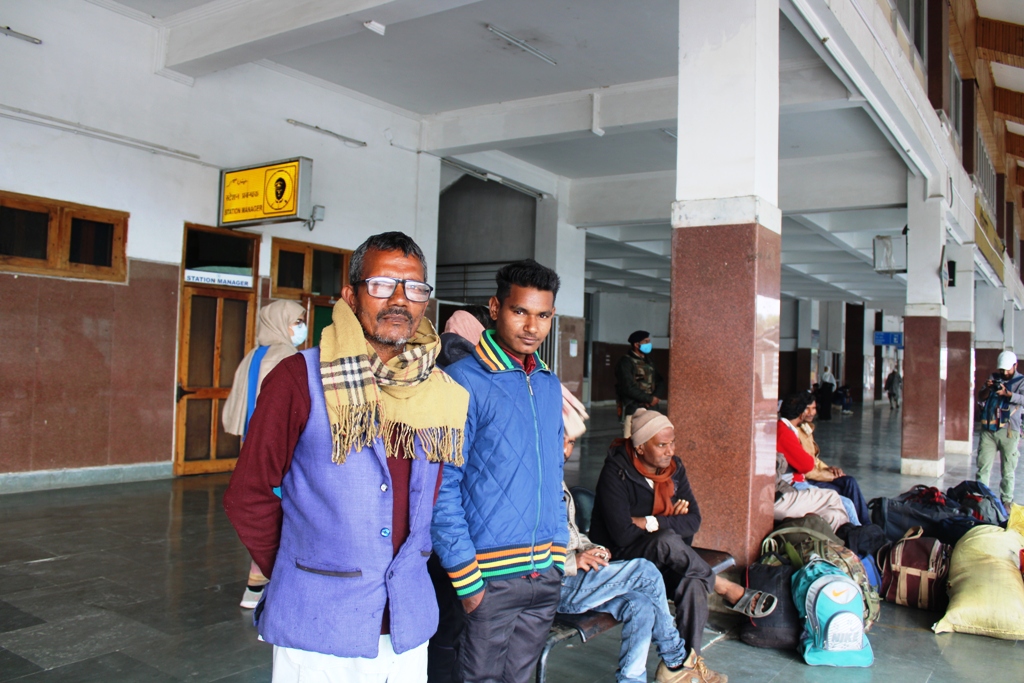
The first attack on a non-local was carried out on October 5, when Virender Paswan, a street vendor from Bihar, was shot dead in Lal Bazaar area of Srinagar. He was gunned down almost an hour after the noted chemist of Srinagar, ML Bindroo was shot dead in his Iqbal Park drugstore.
These back-to-back killings unnerved the non-locals forcing them to leave the valley in droves.
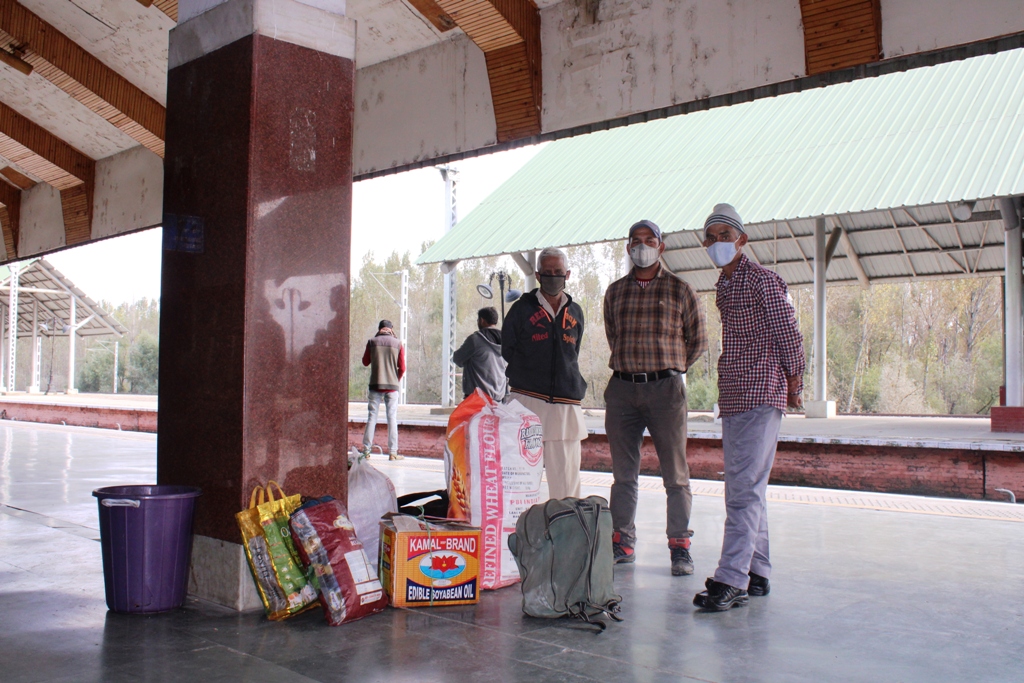
Placing hands on their foreheads, four non-local labourers from Bihar - Sarfaraz, Mohammad Asif, Mohammad Rakib and Baseer - waited in a queue in the railway station at Nowgam, Srinagar. The receptionist informed them that November 15 is the date of their departure.
“We were asked to come here and we did, but now after taking our details they said we will be departed next month,” said Sarfaraz, in a sulking state.
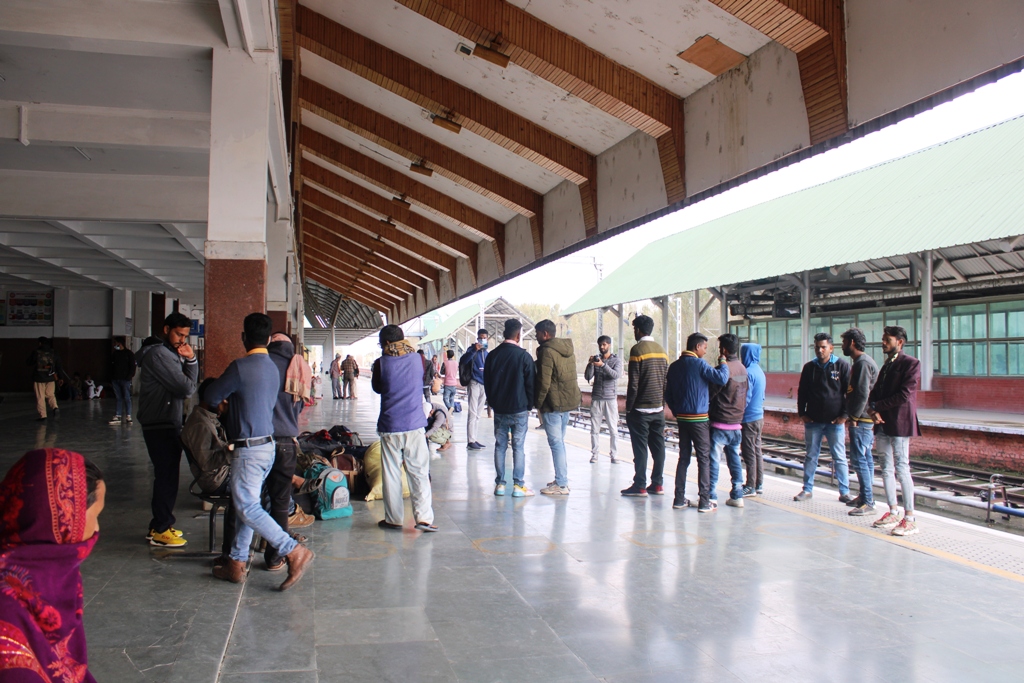
Next in the queue was Birender, a headman of fourteen boys earning their livelihood as labourers in Kashmir. He looked disheartened.
“We don’t want to leave Kashmir,” he said. “We used to earn good money here. But the situation is forcing us out.”
With daily overhead earning of Rs 500, each of his boys would end up their month with Rs 15000.
“In Indian cities,” Birender said, “a literate would earn Rs 15,000 a month after working for 13 hours in a day.”
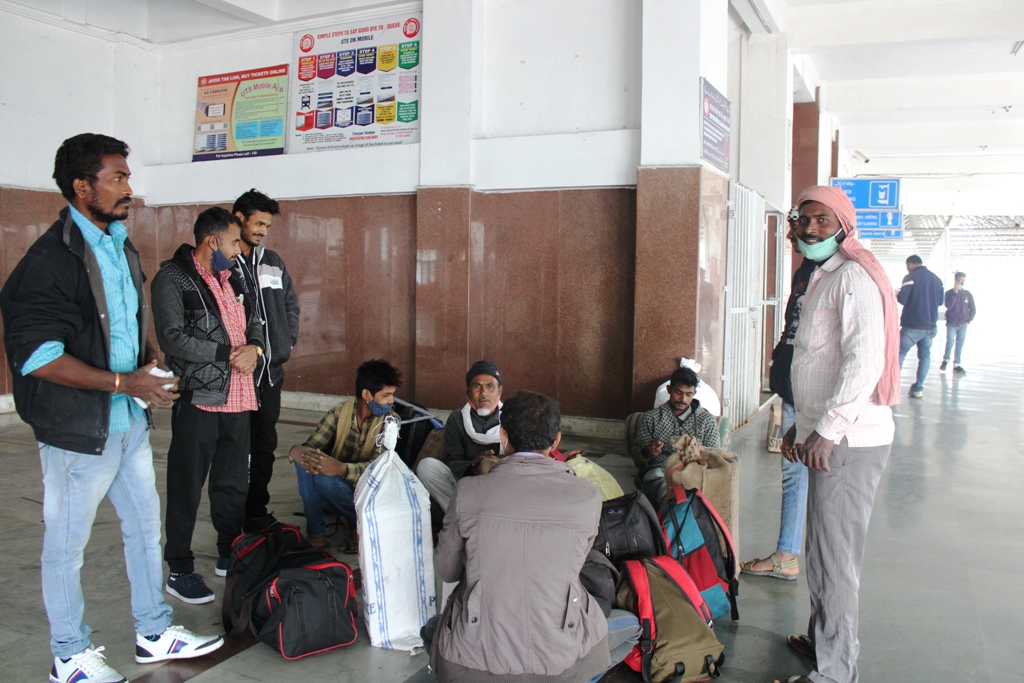
Most of these fleeing migrants have been working in Kashmir for many years now. They arrive during summers and leave before winters.
“But we never felt this insecure before,” said one of Birender’s boys.
“Kashmiri people have always helped us. There were situations like 2014 floods, 2016 unrest or 2019 lockdown when Kashmiris fed us from their pockets. Even today, they sound assuring and supporting, but we are leaving keeping our family concern in mind.”
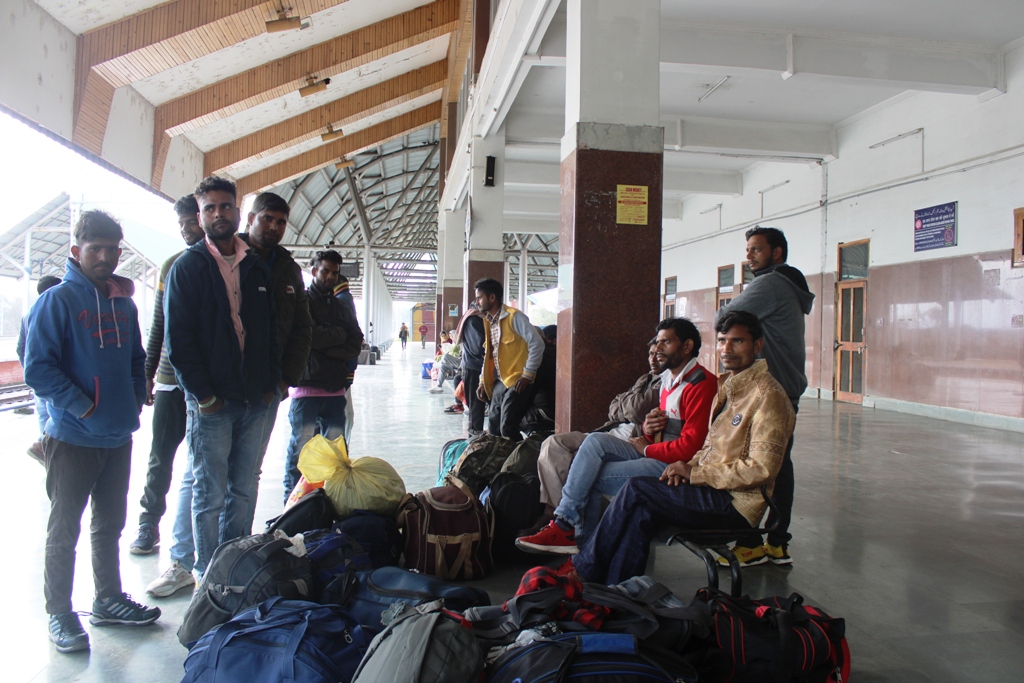
Those staying put in the valley have come to harbour an edgy mindset. Many of them say they won’t stay any longer in the valley.
“While selling popcorn and nuts on my cart, I look right and left 10 times in a minute,” said a non-local. “Who knows who comes from which side and shot me dead!”
But beyond this threat perception, said Mahender Pal, a 25-year-old street vendor, there’s a societal supportive system making many of these non-natives assured about their Kashmir stay.
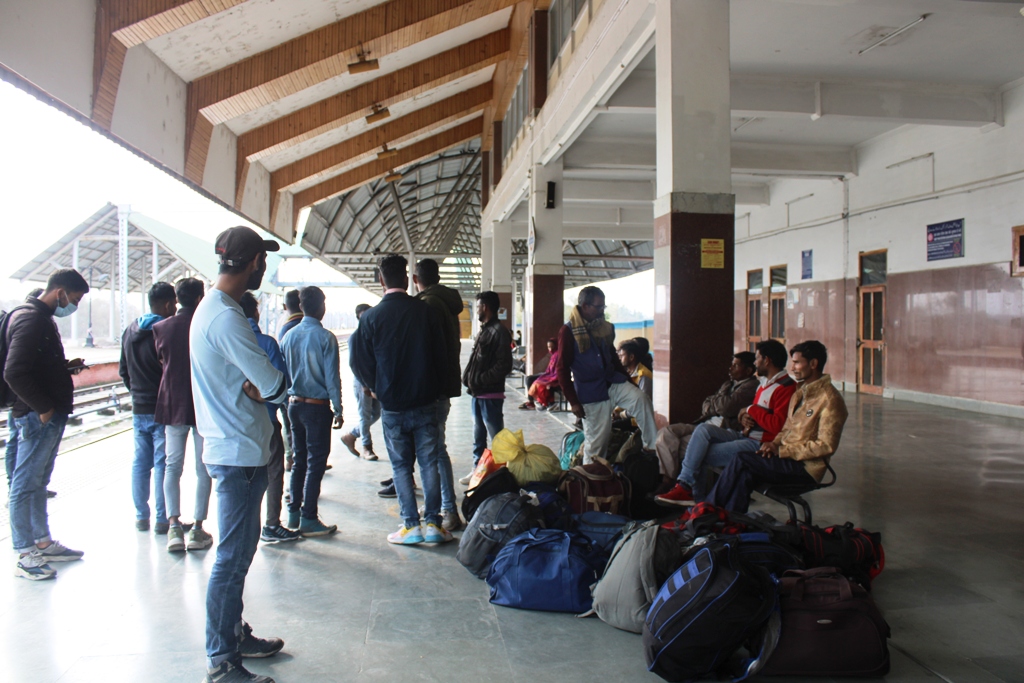
In recent past, Pal said, when his cart capsized on the iconic Boulevard Road, all the cars stopped and locals helped with his cart.
“They gathered all the scattered material back,” he said. “Such hospitable is this society and I have not seen such humanity anywhere else.”
Despite mindful of this local support, the targeted killings, like the one in Kulgam, has forced Rakesh to leave the valley in the earliest.
“At the end of the day,” Rakesh, who sells Pani Puri in Srinagar, said, “life is more important than anything else.”
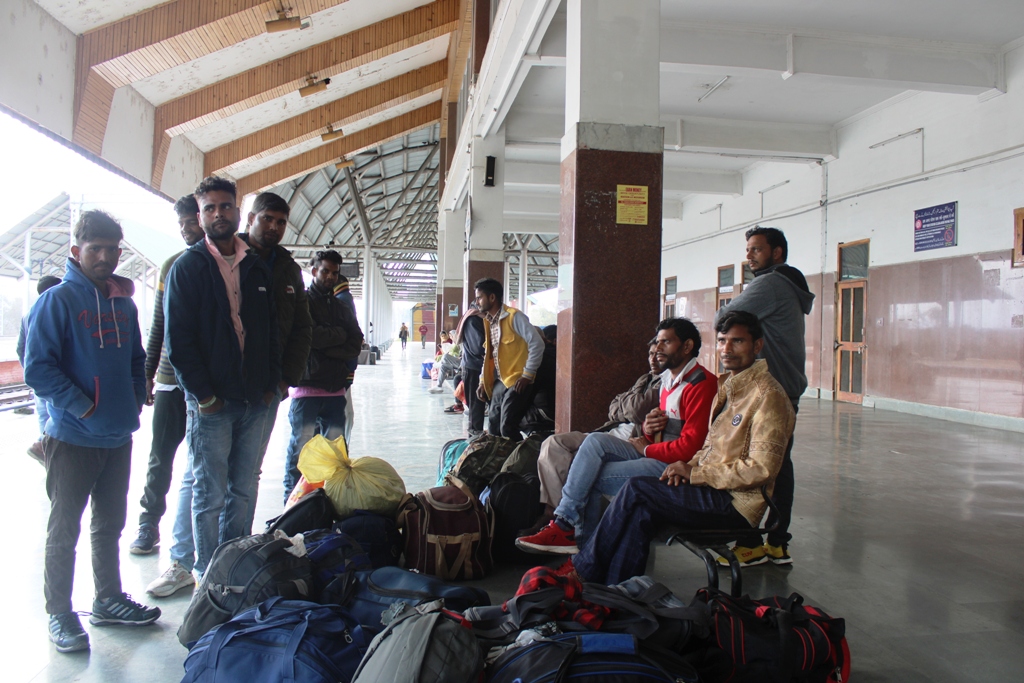
Before the recent rattling attacks, Rakesh said, non-locals labourers were never targeted in Kashmir before. “We’ve seen many worse situations but this violence is very shocking,” he said.
The same shock is now making 19-year-old Nishant look wretched.
Whatever material he had brought to sell went in the loss. “But I thank Kashmiri dealers who took all the material back in half rates,” he said.
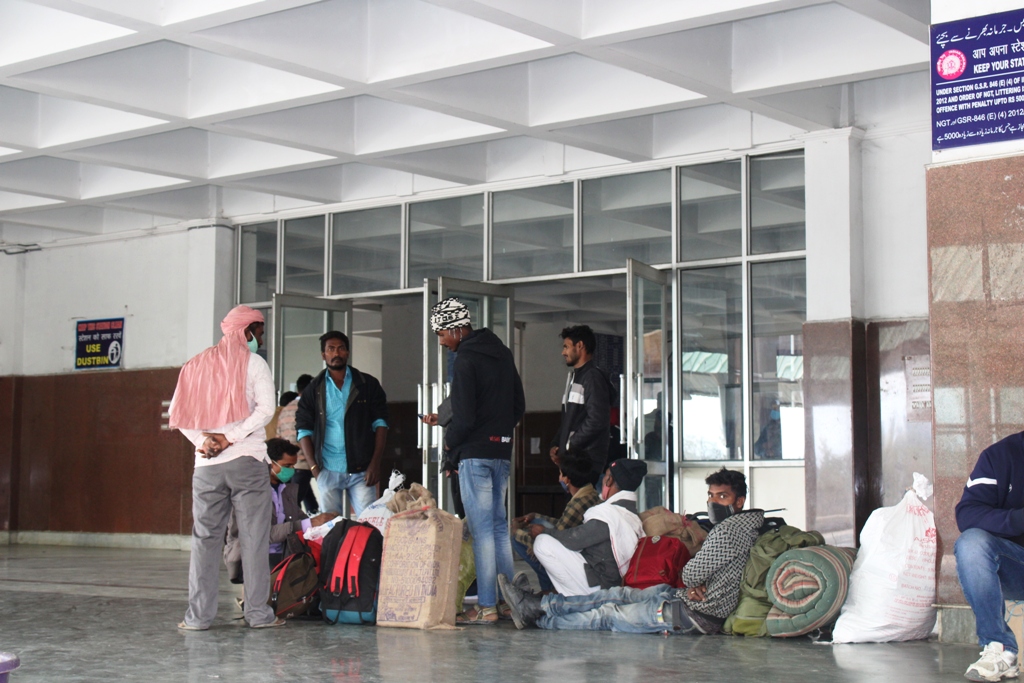
But while they are leaving the valley with parting praises for the locals, some of these migrants invoke Pulwama attack to bring home a point.
“Every Kashmiri was harassed, beaten in different Indian states,” he said.
“These tragedies upgrade hate. Even we don’t want our families to hate a community which is very helpful and hospitable.”